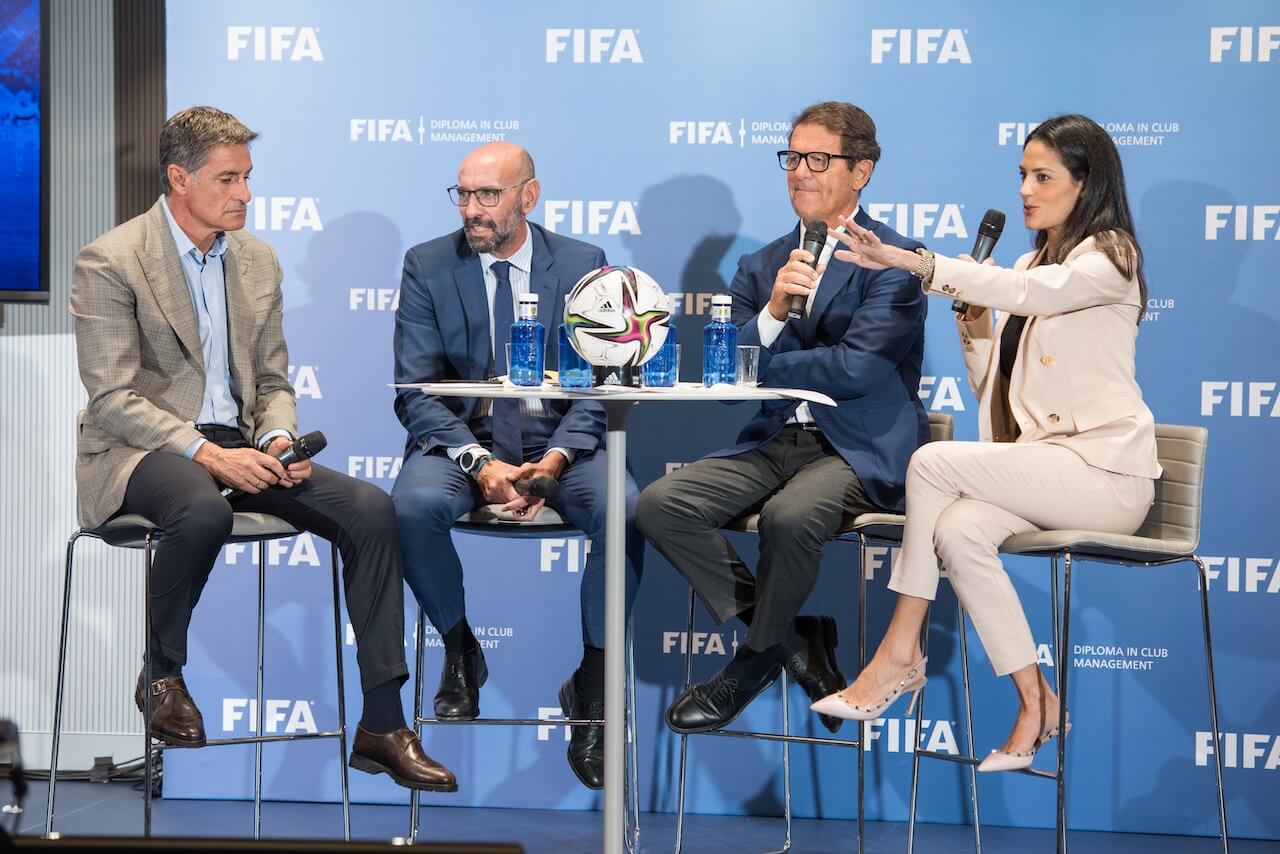Ornella Desirée Bellia: “We need to be open and rethink the way football works if we want to stay relevant as a game and as an industry”
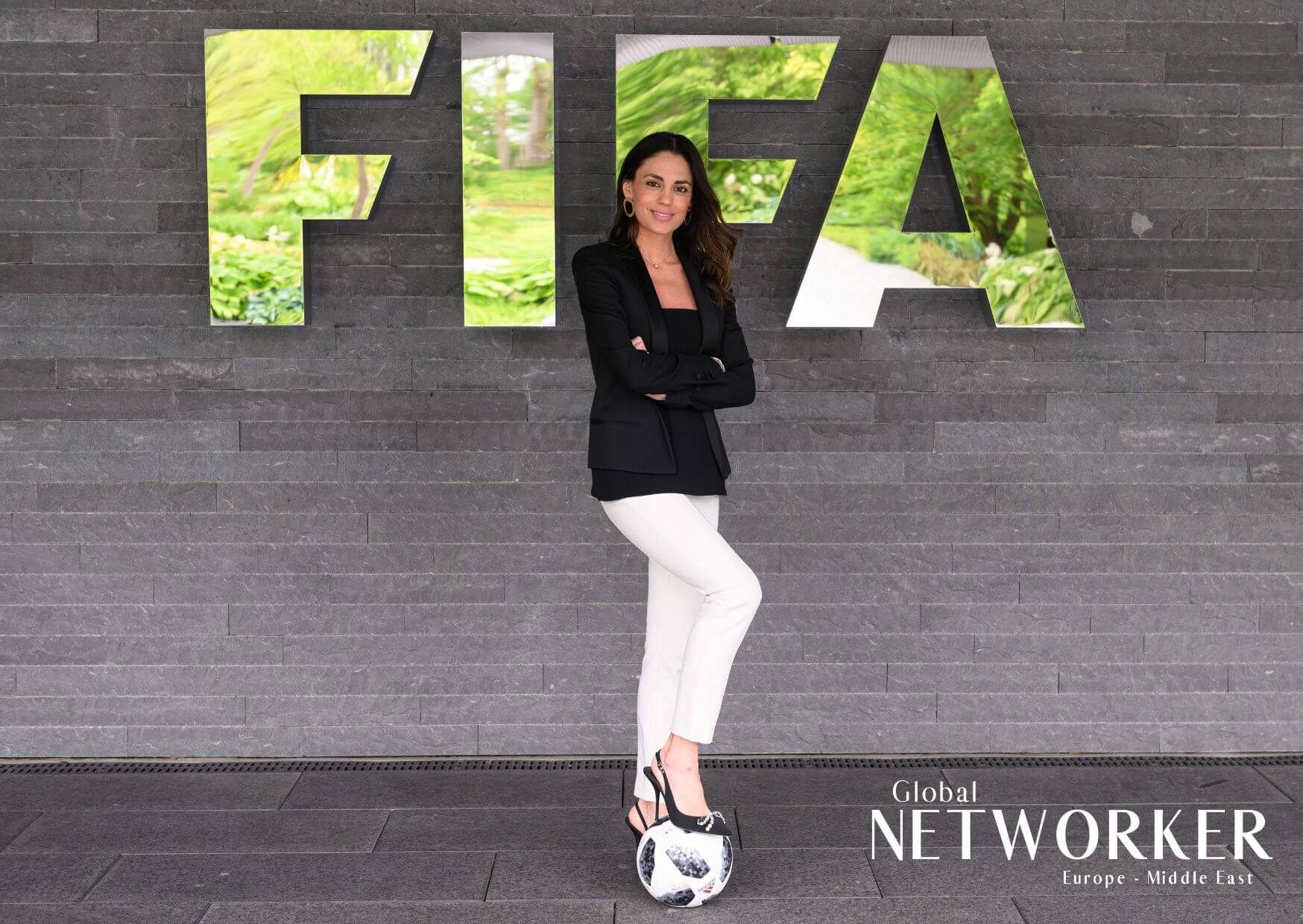
Ornella Desirée Bellia
According to the latest research, football remains to be the most popular and viewed sport all over the world in 2024. Its widespread appeal, massive viewership, and financial impact cement its position as a global phenomenon.
In an exclusive interview, Ornella Desirée Bellia, the Head of Professional Football at FIFA, shares insights into her remarkable journey through the football industry, the transformative power of football, her unwavering pursuit of excellence, and her vision for the industry’s future.
Tell us about your career path. What does it look like in retrospect and how it has developed?
My journey with football started at a young age. I fell in love with football because of the FIFA World Cup in the 90’ in Italy. Then, my father used to take me to watch our hometown football club — Calcio Catania, and years later, after graduating in law, I joined the same football club as a legal affairs manager.
During my time there, I was involved in many other areas, from assisting the CEO with player transfer negotiations, working with the marketing and communications departments, to drafting sponsorship contracts and so on.
After my time at the club, I moved to work in law firms around the world, UK, Brazil, and Spain, where I gained more experience and knowledge of the sports world, assisting players, coaches, football agents, and clubs. Following my LLM in International Sports Law, I joined the Association of European Professional Football Leagues (the European Leagues) as Head of Legal Affairs. This eye-opening experience in a football organization, working for the most successful leagues and their respective leadership, gave me a deep understanding of politics in football and taught me everything about the commercial and governance models of clubs, leagues, and football competitions. A few years later I did an MBA in Sports Management at Real Madrid University, and later I joined FIFA as the Head of Professional Football. All phases of my career helped me to gain a broad understanding of the football industry from different perspectives and cultures.
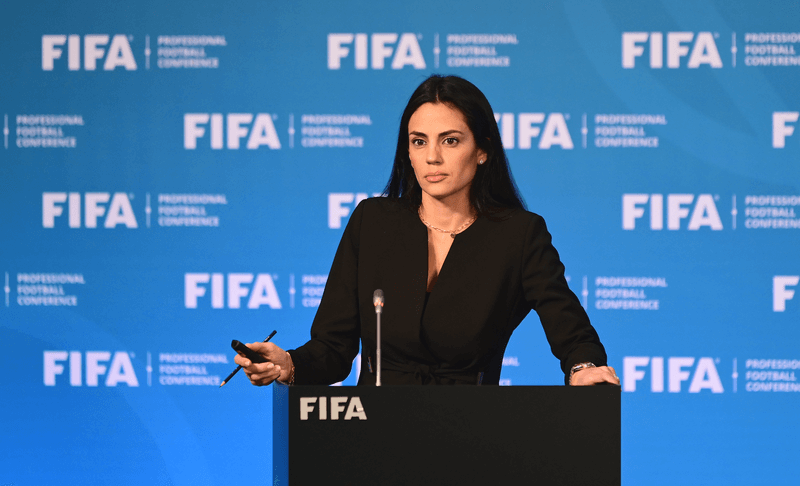
Ornella Desirée Bellia
Could you state that there are any stereotypes or discrimination of women in football or the sports industry in common? If yes, do you have any personal experience? How do you think we can encourage more women into leadership positions in sports?
Being a woman comes with many challenges and obstacles, especially in a male-dominated industry such as football. Unfortunately, there are still biases and stereotypes against women in our society, particularly in our industry.
Women are often looked at as alien in football, I have been there personally and faced those claims. One distinct memory I have was during my first job in football, a person from the management kept saying to me “You are young, you are a woman, you do not know how football works” in addition to, of course, being ignored and not listened to.
I feel that many steps need to be taken for us to see more women in sports and leadership positions and foster positive change. I believe it is super important to have visibility and inspire other women to follow your path. In organizations like FIFA, we are there, for example with Fatma Samoura, our General Secretary for 7 years before stepping down a few months ago.
You also see more and more female representatives on committees and leadership roles, and even in my team, 40% of them are women (the FIFA President being the father to four daughters may be one of the reasons FIFA is so open to welcoming women in leadership positions). I always encourage women to challenge the status quo, take advantage of this stereotype, and use it as an asset.
Tell us about your work at FIFA, what are your main duties and responsibilities? What are your favorite aspects of working at FIFA?
We work very closely with key football stakeholders, including clubs, players, and leagues. The main goal is to enhance the football structure globally, creating a more competitive and appealing football ecosystem where not just a few clubs and players from the wealthiest leagues can compete at the highest level. Our President’s vision indeed is to give a larger number of clubs, players, leagues, national teams, and fans, from all around the world, the possibility to dream big. To achieve this goal, we offer several programs that help clubs and leagues to develop and improve their governance, financial and commercial structures.
We also execute and supervise the FIFA Fund for Football Players (a total of USD 16m allocated over 4 years) as well as the FIFA Club Benefits Programme, the latter distributing funds to the hundreds of clubs that release their players for the FIFA World Cup. For example, after the FIFA World Cup Qatar 2022 we redistributed 209 million to around 440 clubs, and we are already working on the upcoming World Cup in North America, which will see FIFA redistribute USD 355m to an even larger number of clubs.
One main pillar of our subdivision is to spread knowledge and experience among stakeholders around the world, for instance, through the FIFA Diploma in Club Management program, where club owners, CEOs, sporting directors, and football players worldwide get equipped with the latest practical knowledge, essential for successful football club management.
While overseeing and supervising those projects, I enjoy working with people from all around the globe and trying to bring the best to their organizations and create a football structure that is suitable for everyone, always keeping in mind our biggest ambition, to use football to unite people and make a positive impact in their lives. In the end, football is about emotions and community, this is what makes it special and makes me jump out of bed in the morning to go to work!
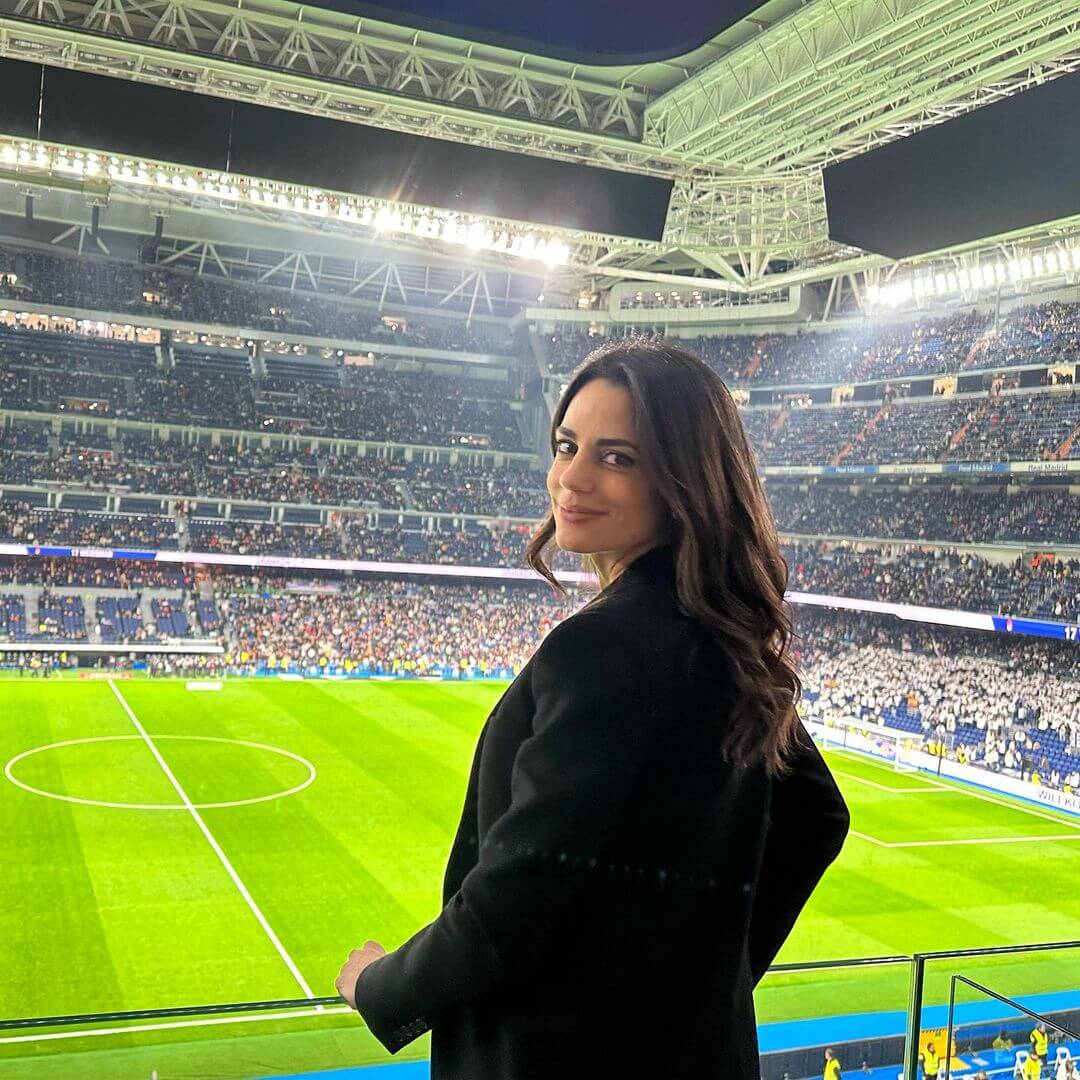
Ornella Desirée Bellia
How would you describe your work ethic and leadership style?
I’m a goal-oriented and dedicated person, I am also very demanding towards myself and those around me. I always strive for excellence and push my team to do the same. Likewise, I don’t like average work and I always try to get the best from people, which sometimes comes with the need to have difficult conversations with your team, but I believe this is needed to create a high-performance mindset. Communication is key, not only in work-related matters, having good communication with those who surround you can allow you to overcome misunderstandings and obstacles that you might not be aware of.
What skills and qualities do you think are most important for success in the sports industry?
To succeed, confidence and resilience are key to facing whatever challenges might be thrown one’s way (even more so if you are a woman working in football!). Flexibility and an open-minded mindset are other important factors, as you must be ready to adapt and change perspective in an industry that keeps changing.
Another key skill is emotional intelligence, having the ability to understand and manage your emotions, as well as recognize and influence the emotions of those around you. Nowadays, more than ever, this has become fundamental and even more important than technical skills.
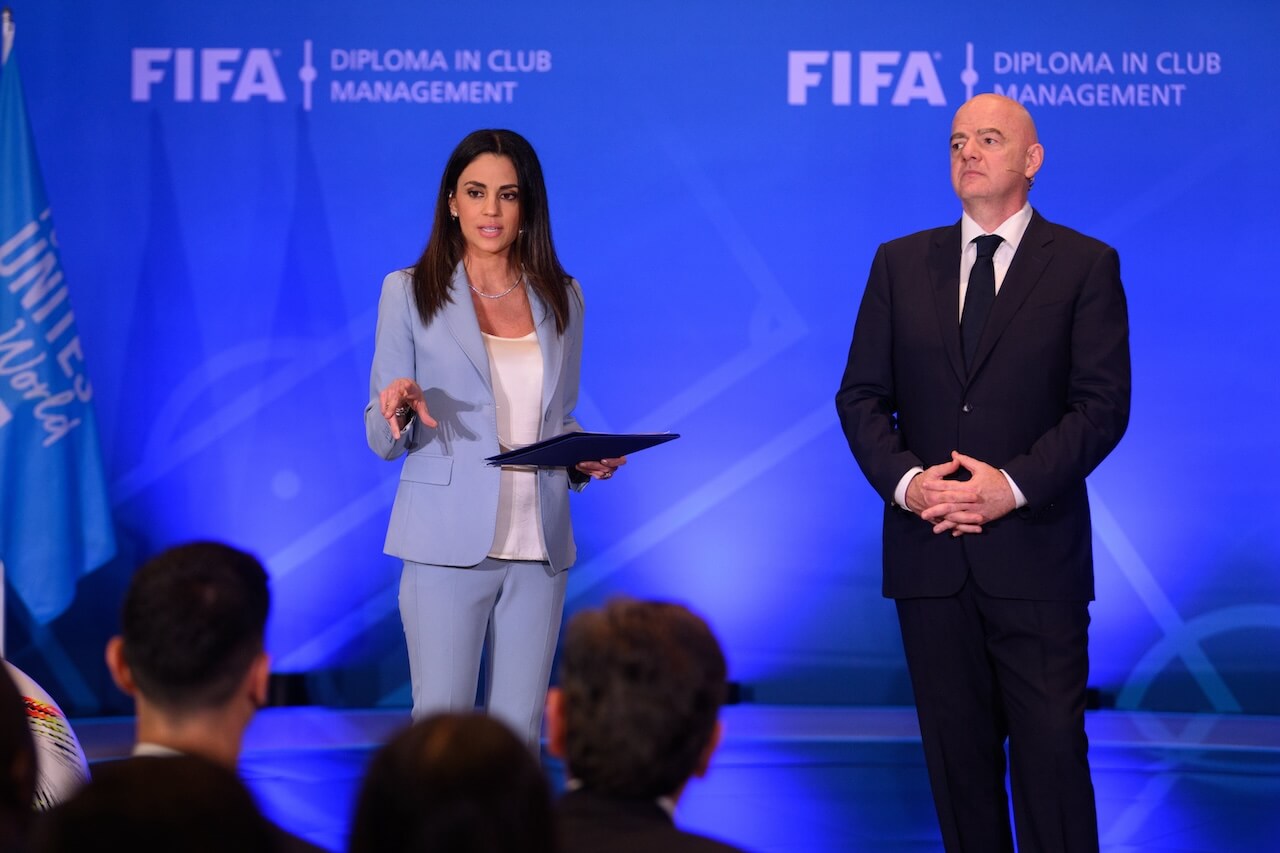
Ornella Desirée Bellia, Gianni Infantino
How do you balance your work with your personal life?
I treasure having a successful career, but unfortunately, this comes with its disadvantages vis-à-vis one’s personal life. I would be lying if I said it wasn’t enough to keep a balance and have stable relationships when you are traveling all the time and working 24/7. Those who surround you are attracted by your energy and lifestyle, but then it becomes hard for everyone to handle it!
Things haven’t been easy for me, especially on the health side, and I have had several challenges that have pushed me to rethink my purpose in life and my priorities. I had to learn how to give myself more time to rest, reset, exercise, meditate, and look after myself. I can say I am still learning, and it’s a lifetime process because when you love what you do, and you have a busy agenda and many projects on the table, it is difficult to prioritize rest over work.
What are your thoughts on the future of football?
The competitiveness of football is the secret ingredient that makes football special. The competitive balance, the uncertainty of results, the possibility for each club to compete at the highest levels, to dream big, to have the chance to win. However, the problem we see nowadays is the polarization of football.
There is too much disparity between leagues, coupled with the internal disparities between ‘top clubs’ which have become global brands, and the so-called ‘small’ clubs. If we look at the top 30 clubs in terms of revenue, there is no non-European club. These top 30 clubs generate a combined turnover equal to the combined turnover of all other top-division clubs in the world. In nine of the last ten editions of the FIFA Club World Cup™, the winners all came from the same confederation. We need to be open and rethink the way football works if we want to stay relevant as a game and as an industry.
What are your personal goals and aspirations for the future?
I have got to a point where my ambition is just to enjoy what I am doing, instead of having the aspiration of doing something else or getting another promotion or a better job. I am happy with what I have, and my life purpose is centered around having a positive impact on people and organizations around the world through my work. It is so rewarding to see the impact we can have on so many, thanks to football and all our different projects.
What is your view on the development and use of artificial intelligence (AI) in football?
Sport in general is just another industry that has seen significant transformation due to AI. Currently, technology businesses related to football are thriving, starting from player scouting and performance to fan engagement. For governing bodies, using AI is becoming a must as well. It is very important to facilitate this technology in a way that will benefit our game and create more opportunities and benefits for all stakeholders. Earlier this year, the FIFA President emphasized the importance of benefiting from advanced technology, and how we should look into the possibility of using algorithms in creating a healthier and more sustainable player transfer system.
Who are your favorite sports teams and athletes?
Whilst I don’t have a favorite athlete, I appreciate those who are inspirational for what they both do on and off the pitch. Cristiano Ronaldo is the best example when it comes to football, he is an outlier, I admire him for his consistency, and dedication, he is someone who works hard and never stops looking for the best version of himself in anything he undertakes. His efforts are not limited to physical performance, he trains his mind and mental strength as well. Same for Rafa Nadal, his motivation and passion are contagious, and have made him the great professional and role model he is today. They are proof that if you work hard and believe, everything can happen.
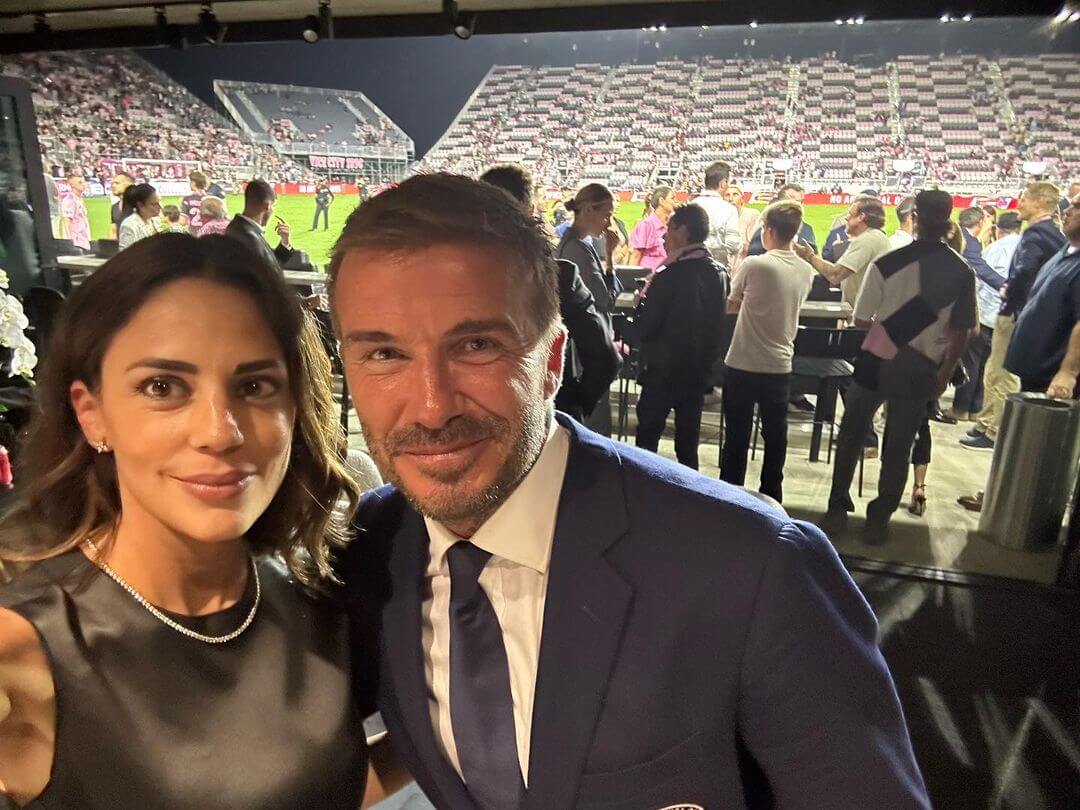
Ornella Desirée Bellia, David Beckham
What sports do you enjoy playing in your free time?
I practice yoga and pilates. I love padel as well, but it’s challenging to align my calendar with friends or colleagues, every time in a different location, especially when I am on a business trip. When I have free time, I love reading. I am passionate about everything related to neuroscience, quantum physics, meditation, and personal growth.
What were the biggest challenges and obstacles you faced on your way, and how did you overcome them?
I have a long list of unpleasant experiences, so much so I could write a book! I will always remember someone I had worked for, who said that I was brilliant in my job, but nobody would ever take me seriously because I was a good-looking woman. That opinion (and many others) could have derailed my dreams, but all those frustrating anecdotes built inside me a strong motivation to prove those people wrong and keep working to achieve my goals and dreams.
I have learned to never listen to the naysayers, the non-believers, those who always see the negative side of everything. I have learned to follow my intuition and my heart, to be determined no matter what, and to show up every day in the pursuit of my happiness.
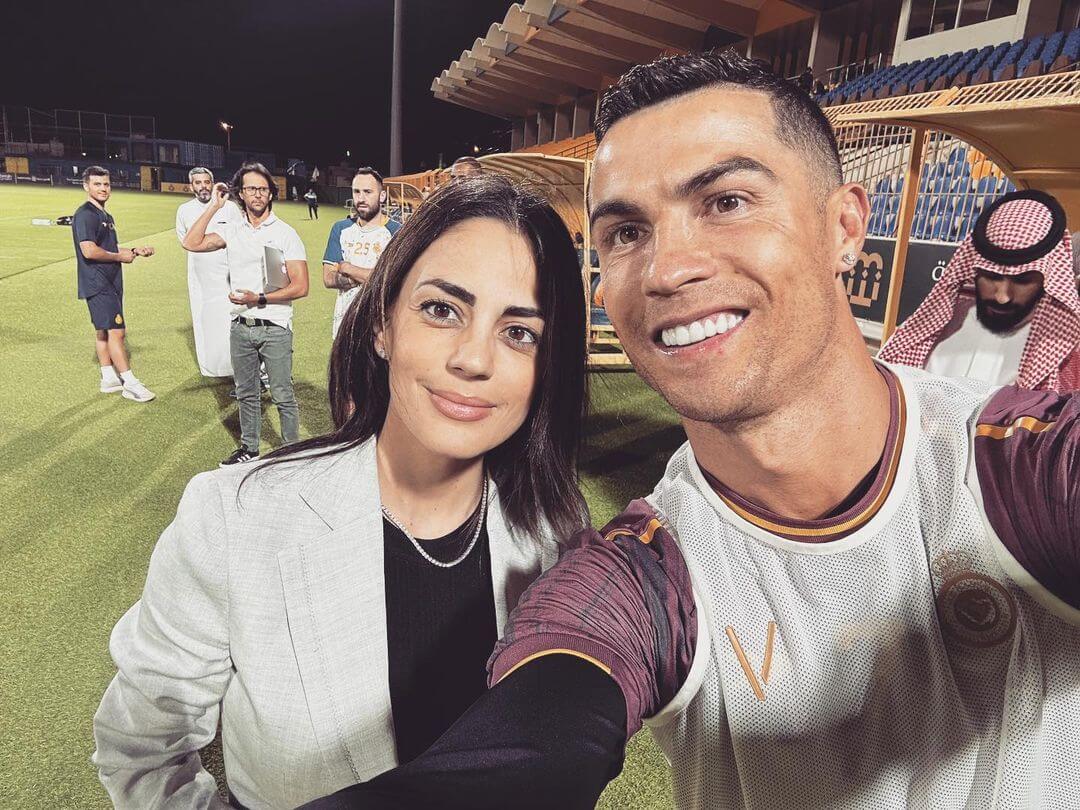
Ornella Desirée Bellia, Cristiano Ronaldo
What advice do you have for young people who are aspiring to a career in the sports industry?
My recommendation is to work hard, to try to always be the best version of yourself, to learn new languages, and to be kind and generous with people, without expecting anything in return. Building relations is a key factor in an industry where who you know may unfortunately sometimes be more important than what you know. Football is indeed an industry that relies heavily on personal relations and interactions, it is a small (yet very globalized) community. Something I always advise young people in the industry is to not be afraid of failing. Failure and rejections are part of a normal development process, don’t take it personally. Embrace your experiences, the ups and downs, and move forward. I have been there, I have been rejected before getting to where I am today. The secret is to keep working on yourself, keep studying, keep learning new languages and skills, keep believing in yourself, and keep dreaming big.
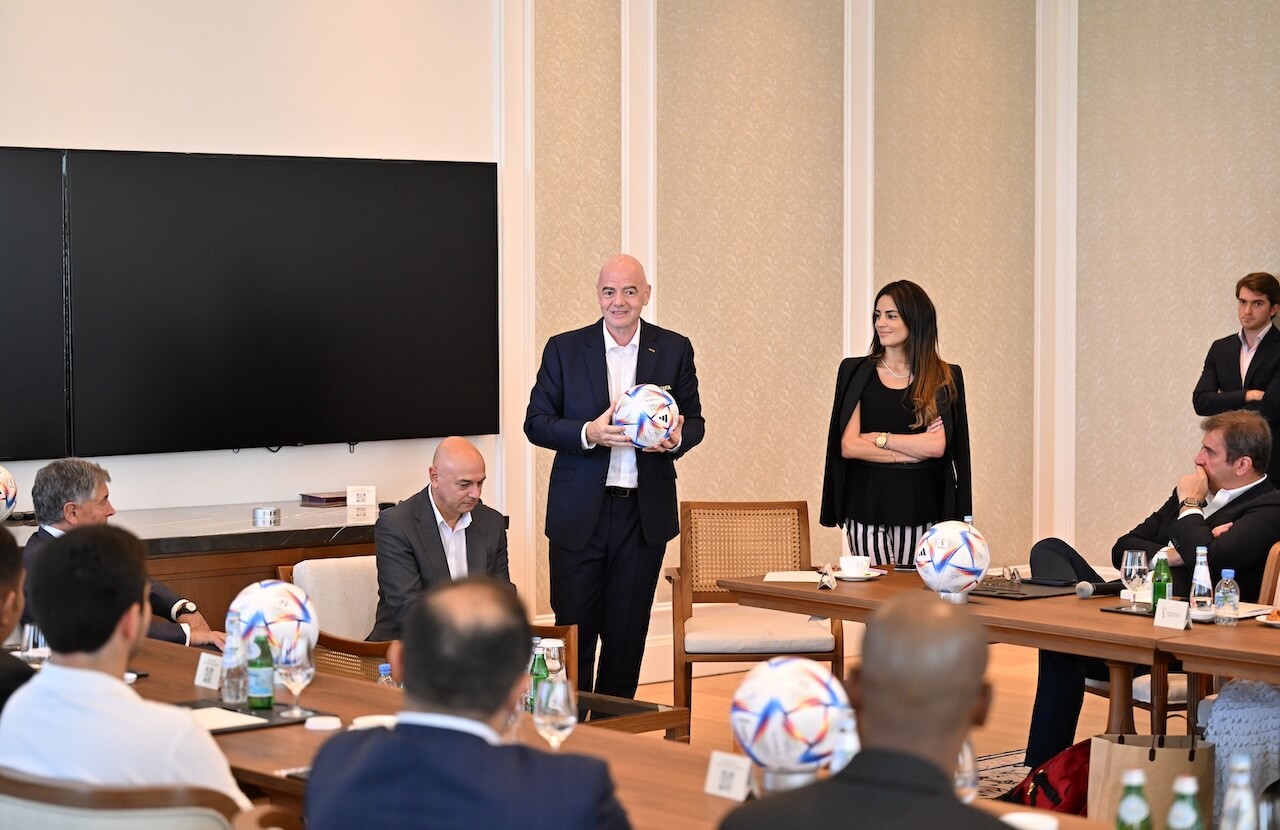
Ornella Desirée Bellia, Gianni Infantino
